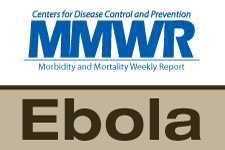Treatment

No FDA-approved vaccine or medicine (e.g., antiviral drug) is available for Ebola.
Symptoms of Ebola and complications are treated as they appear. The following basic interventions, when used early, can significantly improve the chances of survival:
- Providing intravenous fluids (IV) and balancing electrolytes (body salts).
- Maintaining oxygen status and blood pressure.
- Treating other infections if they occur.
Experimental vaccines and treatments for Ebola are under development, but they have not yet been fully tested for safety or effectiveness.
Recovery from Ebola depends on good supportive care and the patient’s immune response. People who recover from Ebola infection develop antibodies that last for at least 10 years, possibly longer. It is not known if people who recover are immune for life or if they can become infected with a different species of Ebola. Some people who have recovered from Ebola have developed long-term complications, such as joint and vision problems.
Even after recovery, Ebola might be found in some body fluids, including semen. The time it takes for Ebola to leave the semen is different for each man. For some men who survived Ebola, the virus left their semen in three months. For other men, the virus did not leave their semen for more than nine months. Based on the results from limited studies conducted to date, it appears that the amount of virus decreases over time and eventually leaves the semen.
- Page last reviewed: July 22, 2015
- Page last updated: July 22, 2015
- Content source:




 ShareCompartir
ShareCompartir